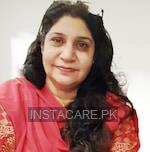From puberty, where they begin experiencing periods, to menopause, when they stop having them, women can potentially get pregnant and give birth—the typical female's uterus years last between 12 and 51 years. Your ovulation naturally declines as you get older, also which could make it harder for you to become pregnant.
Pregnancy age limit
The optimal age to become pregnant, according to experts, the minimum age for pregnancy is between your late 20s and early 30s. This age range yields the best benefits for you and your child. One study found that having your first child at 30.5 is ideal. Each woman's time is different.
How is fertility affected by age?
- Over time, you eventually produce fewer eggs.
- You'll have roughly 25,000 eggs left by the time you're 37. You'll only have 1,000 eggs left when you're 51. Even if it seems like a lot of eggs, the quality of your eggs declines with age.
- As you age, also you become more susceptible to illnesses like endometriosis and tubal disease that can harm your fertility.
- These elements cause your fertility to decrease steadily around the age of 32.
Factors
As you age, your likelihood of becoming pregnant diminishes. Your chances of getting pregnant during your next cycle after three months of trying are:
- 18% by the age of 25
- 16% by the age of 30
- 12% by the age of 35
- 7% by the age of 40
Your chances of becoming pregnant could also be affected by the following factors:
- Smoking
- Pelvic infection
- Radiation
- Chemotherapy for cancer treatment
What advantages do particular ages of pregnancy have?
Women are delaying motherhood for longer than ever. According to a trusted source from the centers for disease control and prevention, the average age of first-time mothers is about 27. Compared to women in their 20s, birth rates have decreased among those in their 30s.
View More: High-Risk Pregnancy - Everything You Need to Know
Advantages of putting off having children
Waiting to have children can have certain advantages. You'll have more time to accumulate funds, build your relationship, and improve your financial situation for the benefit of your child.
Age can also provide patience and knowledge. There is some evidence that children born to older parents perform better academically.
Delaying parenthood could be advantageous for you as well. According to a 2012 study, uterine cancer risk was reduced for women with their last or last child at age 40 or older.
Risks associated with pregnancy
These pregnancy risks increase beyond the age of 35:
- Pregnancy diabetes
- Blood pressure is high
- Preeclampsia
- Placenta previa pregnancy loss
- Premature birth, stillbirth, and the need for a c-section
- Infants with low birth weight, severe bleeding after delivery, and genetic abnormalities like down syndrome.
What happens if the optimal age is missed?
It could be difficult for an individual to predict the date they will give birth accurately. This in no way implies that they were prevented from having children. People must examine all pertinent considerations before deciding what is best for them.
Women should be informed that they cannot get pregnant after menopause. The hormone levels of most women will significantly decline in the years before menopause, which usually happens at age 51.
Males can still conceive up
Males can still conceive until a certain age, but as they age, their sperm alter and become less numerous. Even though many men can still become pregnant in their 60s and beyond, also their sperm may not be as genetically sound.
Using donor sperm or eggs, adopting an embryo, or adopting a kid may still be options for those who miss their biological window for getting pregnant.
Even if people who miss their financially or psychologically optimal times can still have children, they could find it a more challenging, demanding, or unsatisfying experience.
View More: How To Maximize Your Chances Of Getting Pregnant 15 Tips
Conclusion
Having a child can drastically alter a person's life, and many individuals never feel ready for it. Most healthy men and women are still fertile into their 60s and 70s, and although fertility falls with age, most healthy women remain biologically able to bear children until menopause. Some hazards related to pregnancy and childbirth grow as people age.
People should examine the advantages and disadvantages before making a choice that aligns with their values and long-term objectives.
Please book an appointment with the best Gynecologist in Lahore, Karachi, Islamabad, and all major cities of Pakistan through InstaCare, or call our helpline at 02137136090 to find the verified doctor for your disease.












